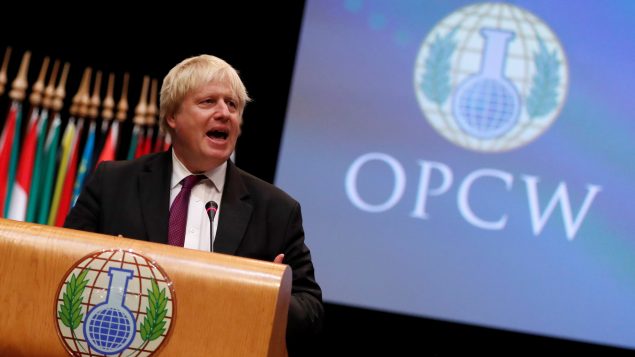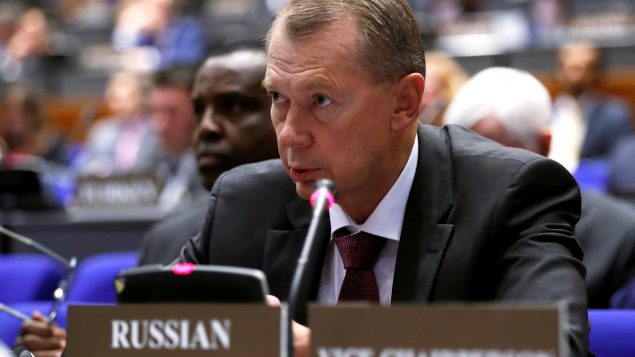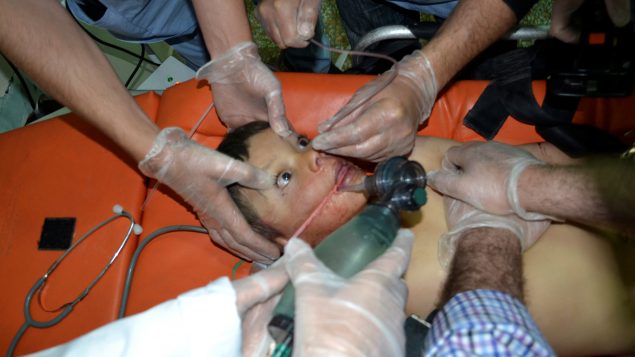Ottawa is welcoming a decision by the world’s chemical weapons watchdog to give itself powers to assign blame for attacks, despite vociferous objections by Russia.
Until now, the Organisation for the Prohibition of Chemical Weapons (OPCW) was only allowed to rule whether chemical weapons were used, but could not name offenders.
In a special session on Wednesday, member states of the agency in The Hague voted 82-24 for the British-led proposal, easily reaching the two-thirds majority needed for it to succeed.
“Any use of chemical weapons is an abhorrent breach of international law and Canada strongly supports efforts to ensure that perpetrators of such crimes are held to account,” Foreign Affairs Minister Chrystia Freeland said in a statement.
“These findings will be reported to the United Nations Secretary General and will ensure that the perpetrators of attacks using chemical weapons in Syria will not be able to hide behind anonymity.”
Attributing responsibility for attacks

British Foreign Secretary Boris Johnson addresses a special session of the Organisation for the Prohibition of Chemical Weapons (OPCW) in the Hague, Netherlands June 26, 2018. (Yves Herman/REUTERS)
The agency’s decision also authorizes the OPCW Director-General to help attribute responsibility for chemical attacks on the territory of member states.
Freeland said she was disappointed by Russia’s attempts to block the renewal of the OPCW-UN Joint Investigative Mechanism and “to shield the murderous Assad regime from accountability for its actions.”
“The Conference of States Parties recognized the results of the OPCW-UN Joint Investigative Mechanism’s last report, which attributed the use of the sarin nerve agent in Khan Shaykhun to Syrian government forces,” Freeland said.
Freeland also announced that Canada will contribute $7.5 million over three years to help build the OPCW’s new Centre for Chemistry and Technology.
Diplomatic setback for Russia

Alexander Shulgin, Permanent Representative of the Russian Federation to the Organisation for the Prohibition of Chemical Weapons (OPCW) addresses a special session of the OPCW in the Hague, Netherlands June 26, 2018. (Yves Herman/REUTERS)
Russia’s ministry of foreign affairs blasted the OPCW decision on Thursday, saying London and its allies “used outright bribes and blackmail” to “squeeze through” the changes in contravention of the watchdog’s original mandate.
The decision “aggravates the cracks within the OPCW, jeopardizing the integrity of the Convention and the very preservation of the global regime of chemical disarmament and non-proliferation of chemical weapons,” said an official statement by the Russian ministry of foreign affairs.
In a veiled reference to the United States, the statement also blasted Washington, “which still has the most powerful arsenal of chemical agents and constantly postpones the deadline for its destruction.”
Russia says it completed the destruction of its stockpile of chemical weapons, once the world’s largest, in 2017.







For reasons beyond our control, and for an undetermined period of time, our comment section is now closed. However, our social networks remain open to your contributions.